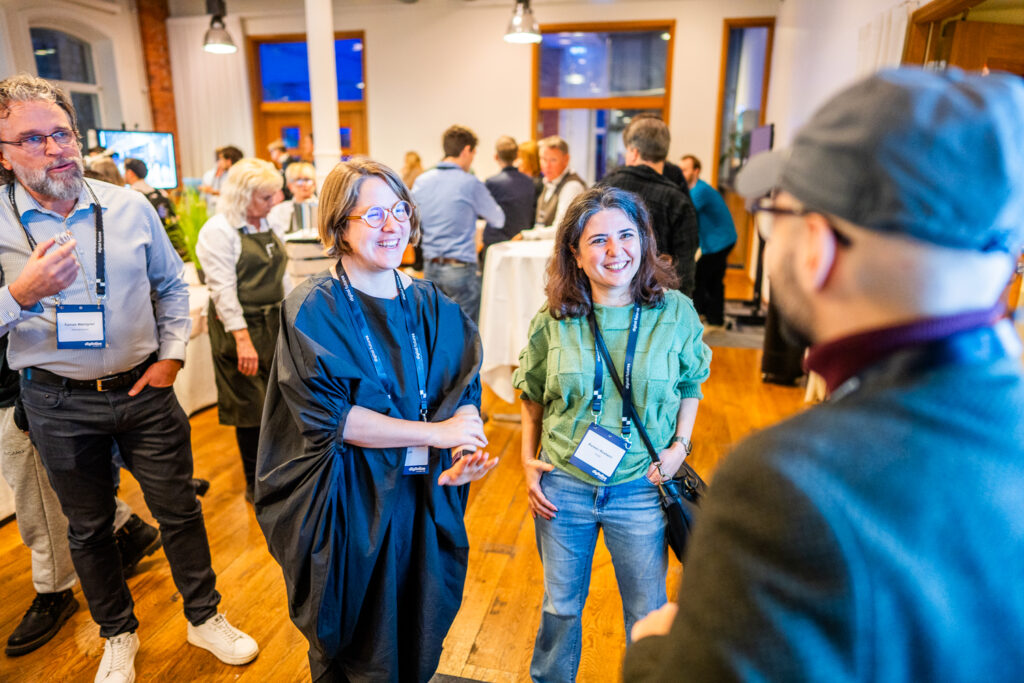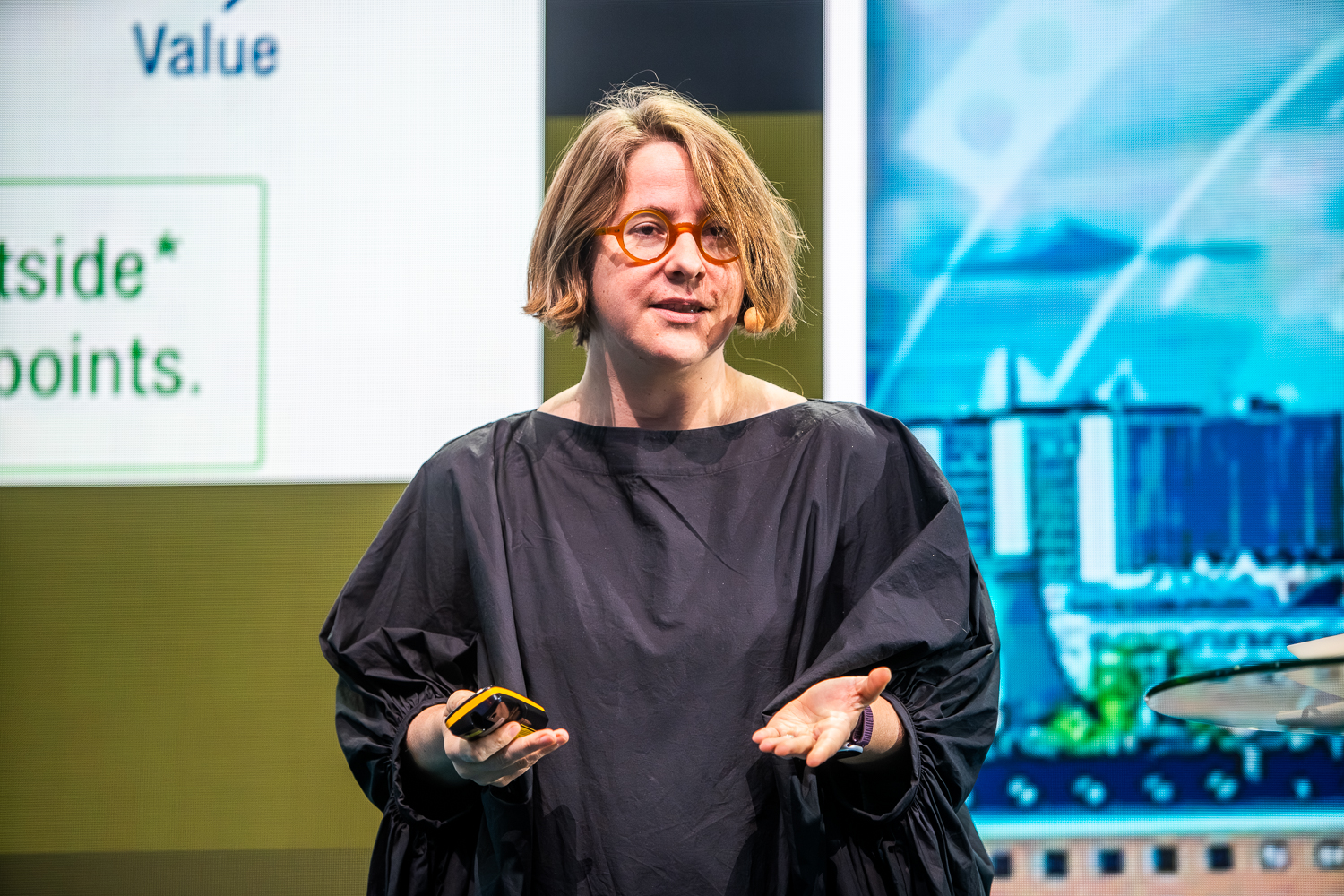At Digitalize in Stockholm, keynote speaker Mar Gonzalez-Franco said she believes that we have a “prompt problem” and need to replace verbal instructions with looks, movements, and gestures to take full advantage of AI.
Dr. Mar Gonzalez-Franco, Research Scientist & Manager @ Google XR, Seattle, USA, is an expert in virtual reality and neuroscientist. She believes that new forms of interaction between humans and computers are necessary for us to take advantage of the opportunities offered by AI in everyday life. The collective name for this is XR (extended reality). “Our human limitations are now becoming apparent. Technology is outshining us. One example is that speech is so much slower than data traffic from a router—only 39 bits per second. Another issue is that we have a prompt problem. The instructions—prompts—that we need to give AI to get the most out of the technology are becoming increasingly complex.”
Link to the recorded presentation “Towards Human-AI symbiosis with XR“on Youtube: https://youtu.be/xrs30x2H1VU?si=m-9h49a3t4_Fou25
Her solution is to replace verbal instructions with eye contact, gestures, and movements. This is faster and more intuitive than giving written or verbal instructions. This is where computer-generated augmented reality comes in as a natural form of interaction, using portable devices worn on the head.

“Smart glasses and headsets have been around for a long time, but only now are they becoming affordable. They give us the opportunity to experience worlds where anything can happen and still feel realistic. And it is now that technology will become the most important foundation for our learning, not nature,” she believes.
That last point may sound provocative. After all, there are studies that show that extensive use of generative AI can make people dumber—that we stop thinking.
“Of course, it’s about how and why you use the technology. In our society, there is a demand to learn increasingly difficult things, and with AI it is easier to get up the learning curve. New methods are also needed in a society that requires lifelong learning. With XR, this can happen more naturally and in a way that is tailored to the individual, wherever and however I want.”
She believes that it will still be very important to know things from the ground up, just as children need to learn to count themselves before they get a calculator. To use AI and make good films, you need in-depth knowledge of filmmaking; to create fashion with AI, you need extensive experience and knowledge in that area.

Karl H. Johansson, Director of Digital Futures, believes that the XR research conducted by Mar Gonzalez-Franco and her team at Google is crucial to enabling more people to benefit from the opportunities offered by digitalization in society. Research into extended reality also offers opportunities to develop new solutions that will lead to new businesses, jobs, and export opportunities for Sweden.
“The European Commission’s latest survey shows that Stockholm tops the list of 241 regions, ahead of Copenhagen, London, and Zurich. An important reason for this is that we have succeeded where many other regions are still struggling—namely in innovation through collaboration between researchers, businesses, and the public sector, known as the triple helix model.”
Digitalize in Stockholm is Sweden’s largest event on the challenges and opportunities facing society as it undergoes digital transformation. This year, some 700 researchers, experts, and business leaders from around the world gathered at Münchenbryggeriet on Tuesday, November 11, 2025.
Text: Johanna Gavefalk – based on interview with Gonzalez-Franco by Håkan Sandberg
Photo: Magnus Glans





